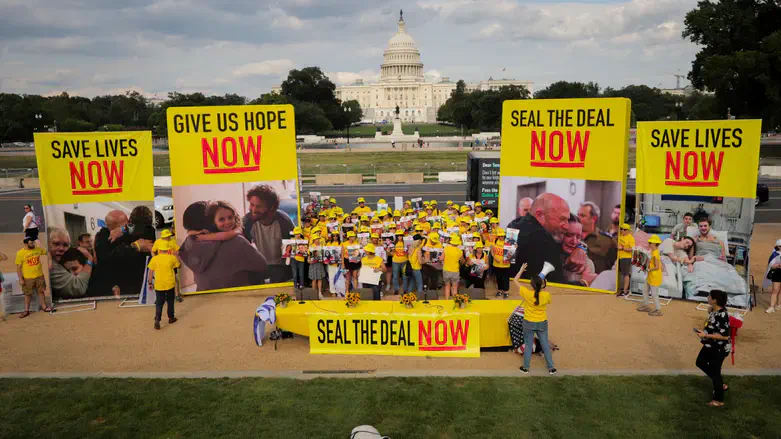
Dr. Avi Perry, talk show host at Paltalk News Network (PNN), is the author of "Fundamentals of Voice Quality Engineering in Wireless Networks,"and "72 Virgins," a thriller about the covert war on Islamic terror. He was a VP at NMS Communications, a Bell Laboratories - distinguished staff member and manager, as well as a delegate of the US and Lucent Technologies to the ITU—the UN International Standards body in Geneva, a professor at Northwestern University and Intelligence expert for the Israeli Government.
Witnessing the intense emotional clash between those determined to secure the return of whatever number of Israeli hostages Hamas is willing to release from Gaza at any cost, and those advocating for Hamas’s defeat as the ultimate solution, I couldn’t help but think of the film Sophie’s Choice.
In the movie, Sophie is taken to Auschwitz and faced with an unimaginable decision: she must choose which of her children will be sent to the gas chamber, knowing that if she doesn’t choose, both will be killed. In her desperation, she chooses to send her daughter, Eva, to save her son, Jan.
Israel is currently facing a similar decision. While some believe that defeating Hamas should be the primary goal of the war and that securing the release of hostages wil result from that defeat, others are focused solely on bringing their loved ones home, regardless of the broader objective.
While the divide between these two opposing approaches is significant, I find both perspectives valid. However, one is driven by emotion and personal attachment, while the other is grounded in logic and strategic thinking.
If I were personally involved—if someone dear to me were among the hostages—there's no doubt I would do everything in my power to fight for their return. I wouldn’t care about the cost, the potential loss of someone else’s life, future kidnappings, or the economic consequences for others. I wouldn’t even care if Israel had to sacrifice border territories. My singular focus would be on one thing: "Bring them home at any price!" Fortunately, I am not personally involved, although my grandson is currently an active paratrooper in the IDF.
However, as the nation's leader, the Prime Minister must rely on objective judgment. He must consider, "How many lives is the life of one hostage worth?" The truthful, objective answer is no more than one (and statistically, less than one when multiple hostages are involved). The Gilad Shalit deal is a stark reminder—Yahia Sinwar and other high-profile terrorists were released as part of that exchange, leading to the tragic events of October 7. Was it worth it?
Since I am not personally involved, I lean toward objective reasoning. Israel must secure its future at the minimal cost of lives, not only now but with consideration of long-term consequences. The return of the hostages is a sacred duty, but it should not come at an unreasonable price in more lives, more pain, and more suffering for others and the country as a whole.
Advocating for yielding to Hamas' demands, while ignoring the critical goals of preventing future incidents like those of October 7 and ensuring lasting peace and security in the Gaza envelope, is akin to smoking cigarettes: it may provide short-term relief, but it ultimately exposes the body to long-term risks like cancer and heart disease. This approach reflects a self-centered mindset that prioritizes immediate comfort to some in the short term at the expense of the greater good to many more in the longer term.
The Israeli government's approach resembles that of a chess player who plans several moves, improving their chances of winning down the road. This is what a responsible government should do—learn from the serious mistakes made in the Gilad Shalit deal and act accordingly.